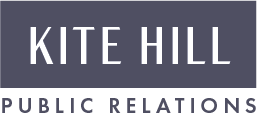As a junior in college, I was home on winter break working at an ice skating rink when a group of younger kids came on a school field trip. After an hour of tying up cute little baby skates and watching them slide around, they began returning their skates. One of the last people to return them was a little black boy who handed me his skates and said, “Thank you, I hope that you’re here next time.”
My first thought was that it was a really nice thing to say, and then I looked around and noticed that he was the only person of color in his class. While I’m sure he was being polite, I remembered the tone and sincerity with which he said it, and it made me wonder if this boy, who I hadn’t interacted with once prior to that moment, might have also meant “I like seeing someone who looks like me.” I think about this day and its impact pretty often. In the short-term, I might’ve made his day a bit brighter by giving him another person of color in a predominantly white community to interact with even if it’s just handing him some skates. In the long-term, interactions like these and other early memories and history mold us and affect what we do with our future. Recently, I had the opportunity to see this first hand from a professional standpoint.
The 5th Annual Black PR History Event at the Museum of PR in New York was a presentation and networking event celebrating Black pioneers of the PR industry and how some of the big moments in African-American history should be used to measure industry progress as well as our personal, professional progress. Speakers Cheryl Procter-Rogers and Dr. Denise Hill did an excellent job discussing this subject from two unique perspectives.
Currently an Assistant Professor at Elon University in North Carolina, Dr. Hill’s presentation was an excellent history lesson in not only the impact of African-Americans in public relations but also the importance of researching a subset of public relations history which has been mostly under-researched to this point. In addition to discussing some of her research on the key roles PR played during pivotal moments in American history such as Brown v. the Board of Education and the work of figures like Frederick Douglass, Hill also spoke about people such as Moss Kendrix, a PR professional worked with big brands such as Coca-Cola and Ford, educating them on the African-American as a consumer. Kendrix was also instrumental in changing the portrayals of African-Americans in advertising.
Proctor-Rogers, a PR and business strategist from Chicago, also looked at some of the big moments in African-American PR history, albeit it more from an industry standpoint, while tying them back to the art of storytelling and how as PR professionals who know the history of those before us, have an obligation to ensure that the stories and narratives that we’re telling are not only truthful but impactful and meaningful. “[In PR], there’s an opportunity to build bridges and connect people, she said, “we’re responsible for what becomes the barometer for progress in PR.”
Not every story we tell is going to or is meant to, lead to history-altering change or have a major impact on society, but knowing your history and using your own experiences to your advantage is a great tool to help craft the unique stories which will leave the most impact possible.
- Jacob Lawrence, Account Associate
